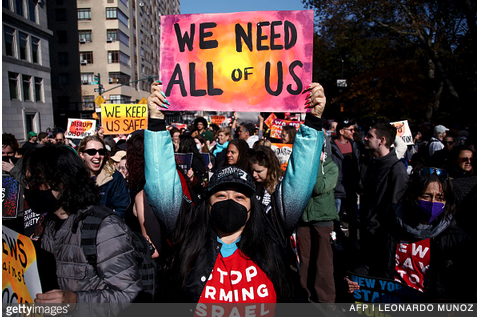Socialism is defined as “a political and economic theory of social organization which advocates that the means of production, distribution, and exchange should be owned or regulated by the community as a whole.” Democratic socialists often defend socialism by asking folks to imagine our country without publically-funded roads, fire departments, schools, Social Security, Medicare, Medicaid, environmental and consumer protection, banking regulation, the FAA, FDA, etc. What if, however, we could incorporate all of these services into another socialist system that already exists? This system provides its community with benefits far beyond the basics just described. To become a member of this community you simply have to be wealthy and the expenses of these services are provided by you and your wealthy associates. I’m talking about the exclusive socialism that exists for the rich and powerful, including subsidies and tax breaks for the wealthy and big corporate monopolies.
The carrot the current form of “wealthy socialism” being held out to the masses is that you, too, can join this exclusive club. The invitation is especially appealing now because “when citizens are insecure and at the same time driven by competitive aspirations, they yearn for political stability rather than civic engagement, protection rather than political involvement.” (Thomas Hobbes)
The pandemic has provided wealthy socialists with the latest opportunity to practice disaster capitalism, taking advantage of a major disaster to adopt normally unacceptable economic policies. An example is Secretary of Education Betsy Devos’ recent push for a voucher system for charter schools and alternative learning. The proposal carries the threat of withholding Covid 19 relief for states that don’t buy in, and it’s another blatant, free-market attempt at privatization that promotes private good over public benefit. While Devos euphemistically speaks about vouchers allowing students to “unlock their full potential,” what she really seeks is breaking teachers’ unions and duplicating the pyramid scheme she and her husband created with Amway, this one funneling taxpayer money to subsidize private enterprise.
Such an approach may be appealing to those who do not believe in e pluribus unum, or who are so captive of fear that they forget the principles upon which our nation was founded, or are so selfish or gullible as to believe that we will not be exploited in a privatized system. Our existing system, as political philosopher Sheldon Wolin describes in Democracy Incorporated, is an “economy of fear,” “designed to create instability to keep the citizenry off balance and passive.” Succumbing to that fear ensures that we experience a “V shaped recovery,” what Wolin calls “inverted totalitarianism, where wealth flows to the top. As Wolin says, “Elections serve up pliant legislators for lobbyists to shape” with the façade of approval from the voters. We have become a managed, suppressed “democracy,” each political party beholding to their preferred corporate overseers.
Wolin describes the “culture wars,” “the politics of the inconsequential,” where politicians and complicit media confound real political involvement and purposely distract from substantive issues. Corporate media carefully define and limit an issue, for example focusing on “racism” rather than poverty or class. Anyone who challenges “the script” is ignored or deemed extremist. Race, an historically convenient tool for financial exploitation, and poverty are systemic siblings.
Wolin states: “The moment we rebel and refuse to take part in the illusion, the face of inverted totalitarianism will look like the face of past systems of totalitarianism.” Count on the media to focus on “looters” rather than the poverty and attendant class rebellion that has driven young white Americans, millennials who have had to endure the War in Iraq, the 2008 recession that birthed reduced hours and wages, unsustainable college debt and, now a pandemic, to stand in solidarity with their black and brown brothers and sisters.


